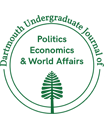Abstract
As the COVID-19 pandemic tore through the globe, policymakers grappled with two key questions. First, to what extent could new tools to collect and analyze data on a massive scale help limit the virus’s spread and, second, how would the collection of that data impact the privacy rights of individuals? This paper examines both questions and reveals how nation-specific traditions, values, and leaders shaped the delicate balance between the right to privacy and the protection of the population from COVID-19. An exploration of the surveillance techniques developed in response to the SARS and HIV pandemics reveals the growing consensus around the importance of accurate data collection and analysis. Next, this paper examines the COVID-19 response in 6 areas (China, South Korea, Singapore, Israel, the United States, and the European Union) to demonstrate the diverse array of responses to the pandemic. Different attitudes toward privacy and government control in each country led to dramatically different outcomes. Finally, this paper examines the role of regime type, leadership, experience with pandemics, and privacy norms in a comparison between China and the United Kingdom. This paper concludes by arguing that the balance between privacy and health can be successfully maintained by ensuring government transparency, reasonable scope and duration of implemented measures, and optimized use of technology to reduce excess data collection.
Recommended Citation
Miller, Jessie
(2021)
"Tracking the Tracing: A Global Investigation of Privacy Issues in the Age of COVID-19,"
Dartmouth Undergraduate Journal of Politics, Economics and World Affairs: Vol. 1:
Iss.
3, Article 2.
Available at:
https://digitalcommons.dartmouth.edu/dujpew/vol1/iss3/2


